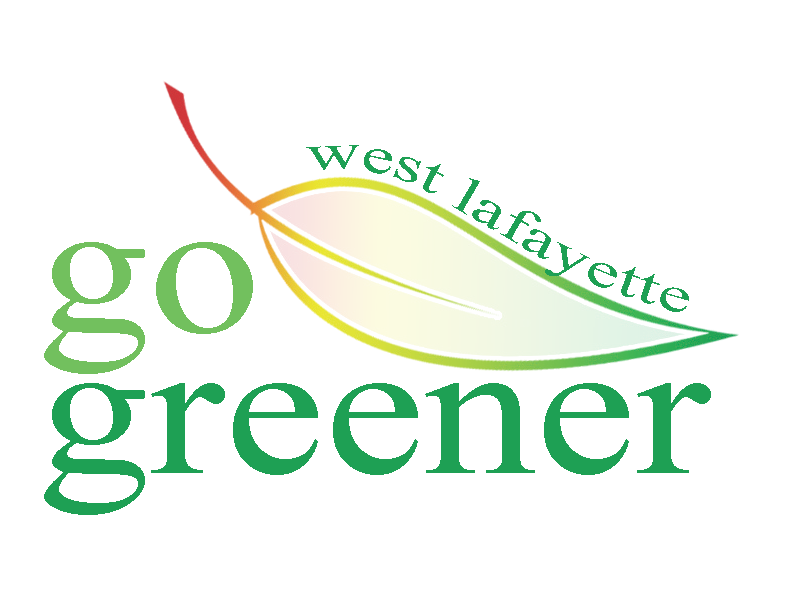Food Waste to Energy in West Lafayette Feasibility Study

Anaerobic digestion is the process by which bacteria break down organic materials in the absence of oxygen to produce methane and nutrient rich solids. The solids can be used as fertilizers and the methane can be burned to generate energy. Food waste is an abundant source of organic material in West Lafayette that has the potential to be an alternative energy resource. West Lafayette has been utilizing the organic digester at its wastewater treatment plant to process the food waste derived from the Purdue dining courts since 2009.
In recent efforts to expand the intake of food waste to the digester, the West Lafayette Go Greener Commission and Purdue University Student Sustainability Council started two food waste collection programs: 1) where residents of Tippecanoe County are now able to bring their food waste to the former recycling center on River Road, and 2) where food waste is collected from fraternity and sorority houses. That food waste is then transported, and processed at the wastewater treatment plant. Though the food waste stream has been steady and abundant, outdated infrastructure and a lack of funding have prevented the program from continued expansion to curb side collection and partnerships with local school corporations. Students will evaluate feasible methods of collection and processing food waste for the City of West Lafayette. Equipment, transportation, ownership, safety, and processing method will be selected in such a way so to uniquely address the needs of specific sub-areas of West Lafayette.
UPDATE
This senior design project analyzes scientific data and compares different food waste treatment methods, particularly collecting and sending food waste to an anaerobic digester for energy recovery versus sending to landfill. The team will conduct a cost-analysis to quantify potential long-term cost and energy savings as a result of increasing the volume of food waste collected to create a financial incentive for future creation of additional drop-off locations. Within the scope of this project, food waste is defined as compostable components of food items that are not consumed by the consumers once they leave the producer’s or distributor’s facilities.
